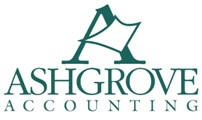QuickBooks used to correctly recognize a sale
When working with small business clients that use QuickBooks software, I often see a short cut used that really needs to stop. That is, the habit of bypassing the method of creating an invoice, receiving a payment, then depositing the payment(s). Too often I find bookkeepers or accountants copying the deposits from the bank statement, directly into QuickBooks, thereby calling it income.
There are two big problems with this. First, one of the benefits of doing your own accounting and bookkeeping on your computer (as opposed to having an accountant do it for you), is that you can create and monitor several different types of income accounts. For instance, a home builder should separate income based on new construction, remodeling, and commercial construction. A nightclub should separate income based on food, drinks, cover charge, etc.
You begin with an invoice. If you don’t have a customer that you would normally invoice in the traditional sense, common in retail businesses, then you should replicate the “Z” reading on the point of sale system each day. A simple template can be created to recognize each line item. The various payments types received should zero out the invoice total, by receiving these payments against the outstanding balance. The key here is the invoice items. They are what direct the income amounts to the appropriate income accounts, when creating the invoice.
The deposit should represent exactly what was taken to the bank. If credit cards are automatically deposited, they should represent their own deposit. Everything needs to match the bank statement exactly. Bookkeeping is about details, and these are the details that make your accounting accurate.
Which leads me to my next point; bookkeepers have often been accused of embezzling money. Similarly, banks and credit card companies can and do make mistakes. If you only create deposits in QuickBooks to match the bank statement, you’re make a big leap of faith that all income earned is what actually got deposited. Big mistake!
I don’t care if you use QuickBooks Online, QuickBooks Pro or Premier, or the Macintosh version of QuickBooks; you need to appreciate the importance of entering sales correctly. The goal to setting up a bookkeeping system in QuickBooks, to recognize your sales, is to use memorized transactions, templates, and other tactics which are part of this accounting software.
Posted in: Blog
Leave a Comment (0) →
